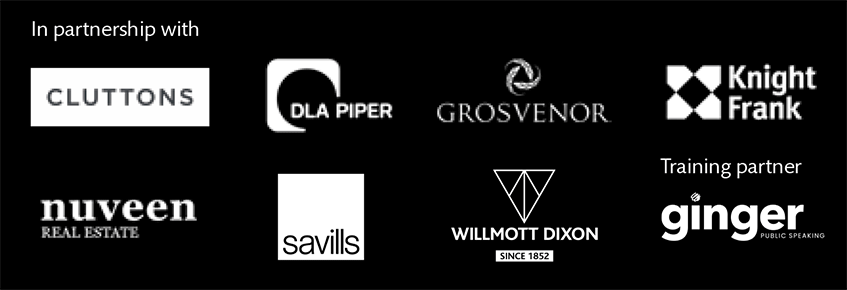Talent is not just about attracting the best people into your business. It is about retaining that talent and developing it – whatever the level of seniority. For leaders, the coronavirus pandemic has brought about fresh challenges around talent and the need for them to acquire new skills.
As part of EG’s Future Female Leaders programme, we caught up with six of the companies supporting the project to find out what the current pandemic has taught them about leadership and why investing in people should be at the heart of every business.
For all six, the absolute necessity for flexibility as both a leader and as a business has become abundantly clear.
“One of the most exciting things about what’s happening at the moment is that the stigma around flexible working has disappeared,” says Knight Frank’s global head of occupier services and commercial agency William Beardmore-Gray. ”If we’re honest with ourselves, most people over 40 may have paid lip service to flexible working, but there’s a lot of leadership which didn’t actually believe in it. That genie is out of the box now. Every business will now be using flexible working as a tool going forward and I think that that is really, really important to business balance that we’re all striving to achieve.”
For Nuveen’s chief investment officer for Europe and Asia Pacific, Michael Neal, that flexibility and balance comes from adaptability.
“At the end of the day, successful leadership by definition, is adaptive,” says Neal. “It has to be progressive and forward-looking because we know the skills and environment that moulded leadership in the past will not necessarily be the route to and suitable for leadership in the future.
“Leadership styles need to be continuously challenged, refined and then executed on the basis of achieving what’s best for clients and for the teams and for the individuals themselves.”
For Sian Tunney, head of the leisure division at Savills, the adaptability and flexibility in working styles brought about by the pandemic has identified real talent within the business.
“During this time different people have had space to come to the fore and have felt confident,” she says. “It’s been an amazing time for the younger people within the business to be just getting on and doing so in a confident way. I’ve seen people really grow and develop.”
Neal agrees. “I think that in using our young talent, our young female talent, we’re in the best place to push that agenda for change,” he says.
It would be easy, however, for firms to tighten the purse strings in the face of a looming recession and cut back on leadership and talent programmes, allowing the changes made over the past few years to rebalance the sector to slip backwards.
“At this time, the automatic response could be to stop non-essential spend,” admits Angela Hughes, HR director at Cluttons. “But we don’t think that development is not essential. In fact, we believe the converse.”
“Staff need more skills at their disposal to be able to be as productive as they would have been in the organisation of old,” adds Hughes. “The focus on leadership development is a primary focus for us and supporting all of our leaders, in particular our next generation of emerging leaders, whether that be female talent or male talent, is an incredibly an important strategy.”
Investing in the future today is what will bring about tomorrow’s greatest leaders. Or so, at least, says Nuveen’s Neal.
“What a year this is going to be to living through and then passing on your experiences,” he says. “Because if you can go through this and come out of it with positives, which I am sure people will, then I think the future’s looking very bright for those individuals.”

To listen to all of EG’s podcasts with the Future Female Leaders and the businesses supporting them, visit www.egrewire.podbean.com
To send feedback, e-mail samantha.mcclary@egi.co.uk or tweet @samanthamcclary or @estatesgazette











